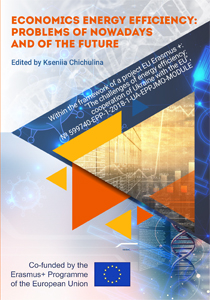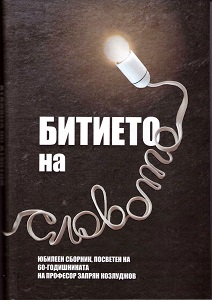
We kindly inform you that, as long as the subject affiliation of our 300.000+ articles is in progress, you might get unsufficient or no results on your third level or second level search. In this case, please broaden your search criteria.






The immediate purpose of this paper is to offer a brief reflection on 1968 as a nodal point in the appropriations and deployments of Romanticism, not least as a diagnostic tool. The article substantiates the case for the continuous after-life of Romanticism in the various guises of post-romanticism, a process which de-emphasizes the notion of period or indeed event, and constructs instead a complex discursive formation that re-negotiates past intellectual agendas and resources by framing them within a discursive longue durée. The article concentrates on the German scene of theory and the student protests during the second half of the 1960s. It traces the mediated links between them and demonstrates how this intellectual and political constellation is traversed by – repurposed and refashioned – Romantic discursive energies that are mobilized in order to make sense of, and respond to, the new developments. The groundwork and the hypotheses advanced in this article require a careful differentiation between two understandings (and projects) of “theory”. In the Conclusion, I discuss the impact of May ’68 on these two different theory projects.
More...
The paper discusses Umberto Eco’s idea to create the blind librarian Jorge of Burgos, a principal character in his novel “The Name of the Rose”, as a nod to the Jorge Luis Borges, who exercised major influence on the novel and the works of Eco in general. This artistic decision, qualified by the critique as an act of lèse-majesté, has provoked multiple commentaries. Here the case is examined in the light of the tension between the conscious indebtedness and the “anxiety of influence“ simultaneously experienced by Eco. The case is additionally contextualized in the framework defined by the Bulgarian reception of the two authors.
More...
The suggested response aims at including also the aesthetic aspect in the range of Bakhtin’s consideration of a writer’s “indirect speech“ („непрямое говорение“).
More...
The problem of skaz poses a challenge before literary theory, especially in that it requires a rethinking of the way in which a literary work can combine literary and non-literary elements. The present paper offers a reflection on the form skaz from the perspective of the literary theory of models. The main argument concerns the way in which the modelling of the literary field operated by this form (that is, modelling of what can be said in a literary work of art and in what manner) is simultaneously modelling of the reality outside the text. In skaz the questions of style are in an immediate way social and political questions. The literary theory of models sheds new light on the way in which, as Zaprian Kozludzhov has claimed, skaz is an intersection point between esthetics and ethics.
More...
This paper tends to be an exposition of the understanding of the different effects of the different ‘turns’ (linguistic, cultural, historical). They may also look like non-interdisciplinary tendencies; this is also to be seen in their occasionally and often frequently inscribed intention to ultimately ensure that the application of the method projected towards the other discipline will render amorphous, erase and appropriate the boundaries of its specific subject. However, the silhouettes of the disciplinary boundaries are preserved also in the joint forcible effect of the different turns. They manifest their specificities indirectly – through the differences in their targets and the definition of the subjects and methods vis-a-vis which they develop their disciplinary resistances.
More...
The paper attempts to create a new model of literary hermeneutics based on the basic principles of quantum mechanics: Heisenberg's un-certainty principle, principle of superposition, collapse of the wave function, principle of complementarity. Through the so-called „quantum hermeneutics“, the possibility of adequately explaining the mysterious nature of artistic reality is explored, as described in „The Double“ of Dostoevsky. In this work, the Russian writer discovers the „formula“, that he will later apply in his last great novels.
More...
The text examines the possible effects of relevant time theories in the texts of Samuel Beckett. The focus is mostly on philosophers read or mentioned by Beckett: Augustine, Descartes, Schopenhauer, Nietzsche, Bergson, Heidegger. Time is interpreted as external condition and as an internal characteristic, as well as their convergence. The article discusses time structure in Beckett's texts as a concentrate of his existential experience in a debate with imposed time theories. He does not fully solidify with any of them and builds his own systematically understanding of the temporal or chronotope in his art.
More...

This paper compares some impression related to the personal memories and Bulgarian diaries and travelogues concerning Paris. On the focus are the unwritten Aleko Konstantinov’s travelogue about World Exposition in 1889 and Eiffel tower, Konstantin Konstantinov remarks on Paris before WW1 and after, in 1931, when Colonial Exposition came through and Petar Dinekov new published diary about Paris in 60s of XX century. The final part considers the participation of d-r Stefan Watew in World Exposition in 1900, dreaming by Aleko and unrealized because of his brutal murder in 1897.
More...
The article examines the traces of the European symbolism in the lyrics of the Bulgarian author. Attention is drawn to important intertextual links from Baudelaire, Mallarme to Yavorov.
More...
The paper follows a literary scandal kindled by the publication of the first volume of Michail Kremen’s “The Novel of Yavorov” in 1959. After considering the idiosyncrasy of the genre it goes on to differentiate five separate “novels” (five plot lines) inside it. The first one is “the novel of Kremen”, a kind of a bildungs narrative; the second portrays the ambivalent and dramatic presence of Peyo Yavorov; the third focuses on his tragic wife Lora Karavelova-Yavorova; the fourth highlights the never seen so far psychological drama of Totka (Dora) Konova-Grozeva; the fifth follows the reception of the book immediately after it was published. The paper is based on prolific research of archive documents and periodicals published in Bulgaria at the end of the 50’s and the beginning of the 60’s of XXth century.
More...
The essay traces the changes that have occurred in the communicative attitudes of the magazine in the course of a decade. The reorientation of reading from the dominant genre of documentary reportage to the dominant expression entailed in the essay, as a form, is deeply connected with the transformation of the envisaged modelling of the exemplary “socialist woman“. The text outlines the symbolic potential with which the narrative models of the reportage woman and the essay woman are vested and seeks to elucidate the grounds for their delineation and difference. At the beginning of the period the reportage woman is the pre-announced, fully-realized (but future-oriented) presence, which recruits “facticity“ and “reality“ (the genre characteristics of the documentary reportage) from the database of the repertoire of ideological references. At the end of the period, the essay woman can rely solely on the genre fields of morality fable and caricature and even heroic chronicles prefer to recognize the “facts“ of the past and convey them to the readers through the figure of the essay woman.
More...
The text examines the philosophical depth of Emilian Stanev’s mature work. Mainly commented on are common places with Arthur Schopenhauer's philosophy. The narrative stylistics of the novel Antichrist, reminiscent of medieval hagiography, is specifically analyzed.
More...
The article examines the Vassil Popov’s short story “Lunar Night” in connection with the F. G. Lorca’s essay about the Spanish Duende. The proximity to the Latin American magical realism is due to the relativism, which has shaken the bases of reality in the Bulgarian short story of the 60’s.
More...
The text provides a retrospective overview of possible Bulgarian nominations for the Nobel Prize in Literature, focusing on some of the real proposals as well as on names that were simply considered as potential candidates. It tries to judge the real chances of all these authors, and also explores the reasons for their failure. Special attention is paid to the trends in contemporary Bulgarian literature – the text discusses the tendency to regionalism, but also the attempts of Bulgarian writers to go beyond it and to examine universal human problems that open up new chances for them.
More...